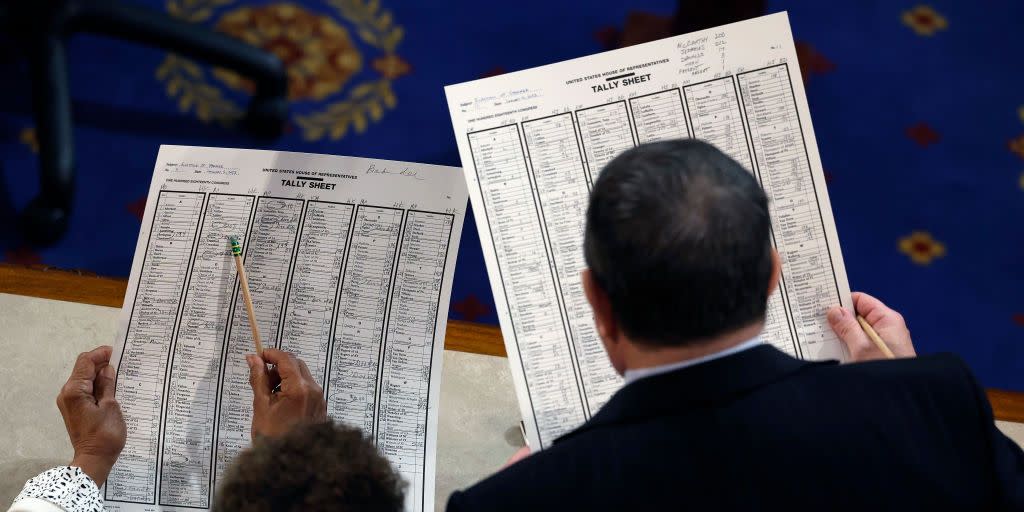The Longest Speaker of the House Elections in History Took 133 Ballots

The biggest news this week in American politics centers around Representative Kevin McCarthy's inability to clinch the Speaker of the House, thus paralyzing the House of Representatives from swearing in its new members or carrying on any business. McCarthy's bid for speakership has been thwarted by a far-right holdouts, and he's struggled to make a deal with the dissidents.
"The entire conference is going to have to learn how to work together, so it’s better that we go through this process right now," McCarthy said last night. "If this takes a little longer, and it doesn’t meet your deadline, that’s OK. Because it’s not how you start, it’s how you finish."
Democrats, however, took a less positive view of the dysfunction. "People are frustrated we’re just doing the same thing over and over and over again and making absolutely no progress," Rep. Julia Brownley said. "What number is this?" Rep. C.A. Dutch Ruppersberger joked, sometime after the eighth vote. "Whatever number it is, after awhile, it is like Groundhog Day—it makes no sense now. Let’s be big boys and girls, come together, use your four-, five-seat majority, and do what’s right for the American people."
This long vote is not without precedent in American history, though it is the first time in nearly a century that a Speaker election required more than a single ballot. In fact, there have been 14 instances in American history where multiple ballots were needed (13 of which took place before the Civil War).
Yet, as the current 118th Congress enters its 12th vote today, it ties for the fifth-longest Speaker election in history, according to the Office of the Historian. If it goes to a 13th ballot, it becomes the fifth-longest on its own. (Philip Pendleton Barbour, of the 17th Congress (1821—1823) needed 12 ballots.)
The four votes that took longer, in order:
4. John W. Taylor, the Speaker of the 16th Congress (1819–1821), needed 22 ballots. (His election was actually not at the start of a session; rather, the election was held after Henry Clay resigned as Speaker).
3. William Pennington, the Speaker of the 36th Congress (1859—1861), needed 44 ballots
2. Howell Cobb, the Speaker of the 31st Congress (1849—1851), needed 63 ballots
1. Nathaniel Prentice Banks, the Speaker of the 34th Congress (1855—1857), needed 133 ballots. Per the Office of the Historian, Banks's election was due to conflict over "slavery and a rising anti-immigrant mood in the nation," which "contributed to a poisoned and deteriorating political climate." In that election, 21 representatives vied for the speakership —it took two months for Banks to triumph.
Hopefully the next Speaker of the House, whomever they may be, does not need two months.
You Might Also Like


